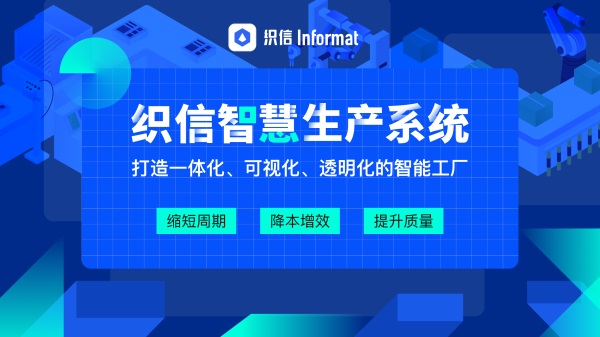mes系统买一套和买多套

在考虑购买MES系统时,买一套与买多套的主要区别在于成本、功能需求和可扩展性,企业需要根据实际需求进行选择。如果企业规模较小,单一工厂或产线,购买一套MES系统可能足够;而对于拥有多个生产基地或复杂生产流程的大型企业,买多套MES系统能够更好地满足分布式管理和个性化需求。购买一套MES系统虽然成本较低,但在扩展性和应对复杂生产场景方面可能会受到限制;反之,买多套MES系统虽然初期投入较大,但能够提供更高的灵活性和功能覆盖。

一、买一套MES系统的优势与局限
买一套MES系统对于小型企业和单一生产基地来说,性价比高、易于管理和维护。单一系统的部署和实施周期较短,能够快速见效。企业在选购MES系统时,通常关注成本因素。一套MES系统的初期投资较低,后续的维护费用也相对较少。对于小型企业或单一生产基地,这种选择能够满足其基本的生产管理需求。
然而,一套MES系统的局限性也不容忽视。随着企业的扩展,生产规模和复杂度增加,单一系统可能无法应对多产线、多基地的管理需求。此时,系统的可扩展性和灵活性显得尤为重要。如果初期选择的系统在功能和扩展方面存在局限,企业未来的生产管理可能会面临瓶颈。
二、买多套MES系统的优势与挑战
买多套MES系统适用于大型企业或有多个生产基地的企业,高灵活性、强大功能和分布式管理能力是其主要优势。通过多套系统的协同工作,企业可以实现对不同生产基地、不同产线的个性化管理和实时监控。每个生产基地根据自身需求定制化系统功能,确保生产管理的精细化和高效化。
尽管多套系统的初期投资较大,但其带来的管理效益和生产效率提升往往能够抵消这一成本。多套系统的部署可以分阶段进行,根据企业的发展规划逐步实施,减少一次性投资压力。然而,多套系统的管理和维护复杂度较高,需要企业具备相应的技术和管理能力。如何确保不同系统之间的数据一致性和协同工作,也是企业在实施过程中需要解决的问题。
三、如何选择适合的MES系统
企业在选择MES系统时,应综合考虑企业规模、生产复杂度、预算和未来发展规划。对于处于初创阶段或规模较小的企业,选择一套功能全面、性价比高的MES系统是明智之举。这样的系统可以帮助企业快速建立生产管理体系,提高生产效率和质量控制能力。
对于已经进入稳定发展期或拥有多个生产基地的大型企业,选择多套MES系统更能满足其复杂的管理需求。通过多套系统的分布式管理和功能定制,企业可以实现对不同生产环节的精细化控制和优化,从而提升整体生产效率和市场竞争力。在选择具体系统时,企业应充分调研市场上不同MES系统的功能和性能,结合自身实际需求做出科学决策。
四、MES系统的实施与运维
无论选择一套还是多套MES系统,实施和运维都是关键环节。系统的成功实施需要企业高层的支持和各部门的协同配合。实施过程中,应确保系统与现有生产设备和信息系统的兼容性,制定详细的实施计划和培训方案,确保员工能够熟练使用新系统。
在运维阶段,企业应建立健全的系统维护和更新机制,确保系统稳定运行和功能持续优化。通过定期的系统评估和反馈,及时发现和解决问题,提升系统的使用效果。同时,企业还可以借助外部专业服务提供商的技术支持,确保系统在整个生命周期内的高效运行。
五、织信:灵活高效的MES系统选择
在众多MES系统中,织信作为基石协作旗下的产品,以其高灵活性和强大功能备受企业青睐。织信提供了丰富的定制化功能,能够满足不同企业的个性化需求。其灵活的模块化设计,方便企业根据实际需求选择和扩展功能,避免了系统功能冗余和资源浪费。
织信的优势不仅在于功能强大,更在于其易于实施和运维。企业无需投入大量资源和时间,即可快速部署和上手使用。织信还提供专业的技术支持和服务,帮助企业解决在使用过程中遇到的各种问题,确保系统的持续高效运行。
更多关于织信的信息,可以访问其官网:https://informat.cn。
综上所述,企业在选择MES系统时,应综合考虑自身实际情况和未来发展需求。买一套还是买多套,关键在于找到适合企业自身的解决方案,充分发挥MES系统在生产管理中的作用,提升企业的生产效率和竞争力。
相关问答FAQs:
FAQs about Purchasing MES Systems: Single vs. Multiple Licenses
1. What are the advantages of purchasing a single MES system compared to multiple systems?
Opting for a single MES (Manufacturing Execution System) comes with several benefits that can be particularly advantageous for businesses just starting out or those with a more straightforward manufacturing process. A single MES can offer streamlined implementation, where all functionalities are integrated into one system. This can reduce complexity and lower initial costs since you're only investing in one set of software, hardware, and training.
Moreover, managing one MES system simplifies maintenance and updates. With only one system to monitor and upgrade, IT staff can focus their efforts more effectively, leading to fewer disruptions and a more stable operational environment. For smaller operations or those with less complex production needs, a single MES can provide ample functionality without the additional overhead of managing multiple systems.
On the other hand, purchasing multiple MES systems can be beneficial for larger enterprises or those with diverse production lines. Multiple systems allow for customization and specialization in different manufacturing areas, which can enhance efficiency and productivity. Each system can be tailored to meet the specific needs of various production processes, from assembly lines to batch production, ensuring that each segment of your operation has the most suitable software.
Additionally, having multiple MES systems can provide greater flexibility in managing different sites or production units. If your company operates in multiple locations or has various product lines, having separate MES systems can facilitate better control and management across these different environments. This segmentation can help in maintaining more focused oversight and can cater to the specific requirements of each production area.
2. How does the cost differ between buying one MES system and multiple MES systems?
The cost implications of purchasing a single MES system versus multiple systems can be substantial and vary depending on several factors. When acquiring a single MES system, businesses often benefit from a more straightforward pricing structure. The initial investment typically includes the cost of the software license, implementation, training, and support. This consolidated approach can be more economical, particularly for smaller organizations or those with less complex needs.
Conversely, investing in multiple MES systems usually involves a higher total expenditure. Each system will require its own set of licenses, hardware, and potentially more extensive training and support. The cumulative costs of these multiple systems can add up, making this option more expensive upfront. However, this higher cost can be justified if the systems are tailored to meet the specific needs of different production areas, leading to increased efficiency and potential cost savings in the long term.
In addition to the direct costs, businesses must also consider the ongoing expenses associated with maintaining multiple MES systems. This includes costs related to system integration, data synchronization, and additional IT resources required to manage multiple systems. These ongoing expenses can offset some of the initial savings associated with a single MES system.
3. What are the long-term benefits of choosing multiple MES systems over a single system?
Long-term, the decision to implement multiple MES systems can offer several strategic advantages, particularly for larger or more complex manufacturing operations. One of the primary benefits is the ability to achieve higher levels of customization and specialization. Each MES system can be designed to cater to specific manufacturing processes or production lines, allowing for more precise control and optimization of operations. This tailored approach can result in improved efficiency, reduced downtime, and better overall performance in each production area.
Another significant advantage of multiple MES systems is the potential for enhanced scalability and flexibility. As your manufacturing operations grow or evolve, having separate MES systems enables you to adapt more easily to changing requirements. New systems or functionalities can be integrated without disrupting existing operations, allowing for more gradual and manageable expansion.
Furthermore, multiple MES systems can offer improved risk management and resilience. If one system encounters an issue or experiences downtime, the other systems can continue to operate independently, minimizing the impact on overall production. This segmentation can help ensure that critical operations remain functional, reducing the risk of widespread disruptions.
Additionally, having multiple systems can facilitate more detailed and granular data analysis. Each MES system can provide insights specific to its area of focus, enabling more comprehensive and accurate reporting. This level of detail can be invaluable for strategic decision-making and continuous improvement efforts.
Ultimately, the choice between a single MES system and multiple systems should be based on the specific needs and goals of your manufacturing operation. Each option has its own set of benefits and considerations, and understanding these can help you make a more informed decision that aligns with your long-term objectives.
版权声明:本文内容由网络用户投稿,版权归原作者所有,本站不拥有其著作权,亦不承担相应法律责任。如果您发现本站中有涉嫌抄袭或描述失实的内容,请联系邮箱:hopper@cornerstone365.cn 处理,核实后本网站将在24小时内删除。
最近更新
立即开启你的数字化管理
用心为每一位用户提供专业的数字化解决方案及业务咨询




